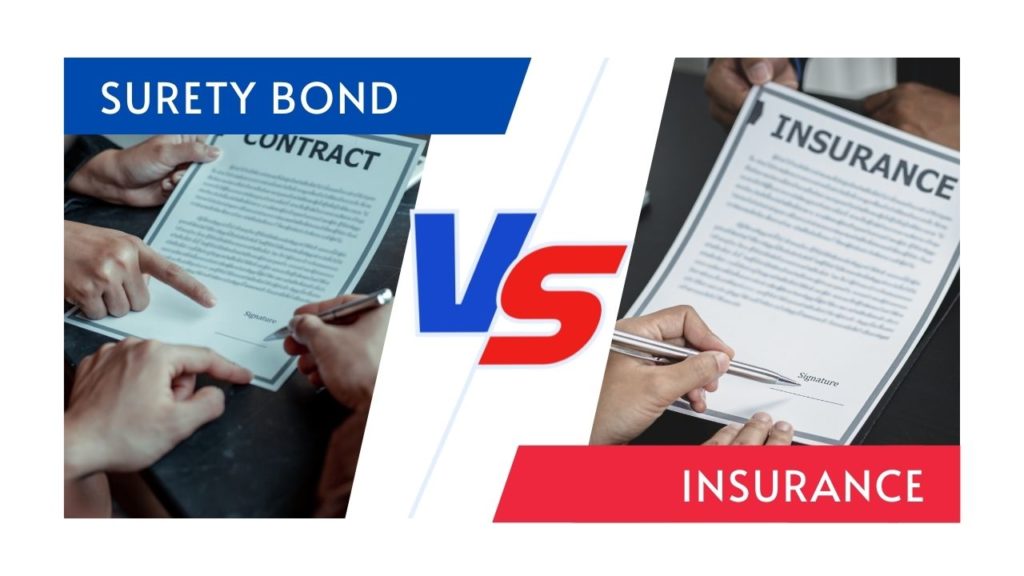There are a lot of business decisions that need to be made, and one of the more important ones is deciding whether to get a surety bond or insurance. Both have their pros and cons, but which one is the better choice for your business? In this blog post, we will explore the differences between surety bonds and insurance so that you can make an informed decision.

What is the difference between surety bonds vs insurance?
The main difference between surety bonds and insurance is that insurance protects the policyholder from loss, while a surety bond protects the obligee from financial loss due to the principal’s failure to perform on a contract.
Who is protected with a surety bond vs insurance?
Most people are familiar with insurance, but fewer are familiar with surety bonds. Both insurance and surety bonds protect the policyholder from certain risks, but there are some key differences between the two. Here’s a look at who is protected with a surety bond vs insurance:
With insurance, the policyholder is protected against specified risks. The insurer agrees to pay for any losses that occur as a result of these risks.
With a surety bond, the obligee (the entity requiring the bond) is protected against financial losses if the principal (the party obtaining the bond) fails to meet its obligations. The surety company that issues the bond agrees to pay the obligee for any losses that occur as a result of the principal’s failure to meet its obligations.
How do premiums work for surety bonds vs insurance?
Surety bonds and insurance both involve the transfer of risk from one party to another, but there are some key differences in how premiums work for each type of coverage.
With a surety bond, the premium is typically a percentage of the total bond amount, and it is paid by the bonded party (the principal) to the surety company. The premium is generally non-refundable, even if the bonded project is completed without any claims being filed.
Insurance premiums, on the other hand, are paid by the policyholder (the insured) to the insurance company. They are based on a variety of factors including the type and amount of coverage, the deductible, and the policyholder’s claims history. Premiums can be paid in a single lump sum or spread out over time, and they are generally refundable if the policy is canceled before it expires.
How are claims handled for surety bonds vs insurance?
There are a few key differences between how surety bonds and insurance handle claims. First, with a surety bond, the company that issued the bond is responsible for paying out any valid claims. Insurance companies, on the other hand, are only responsible for paying out claims that are covered by the policy.
Is it better to be bonded or insured?
The answer to this question depends on your particular situation. If you are a business owner, you may be required to have both bonding and insurance. If you are an individual, you may only need one or the other.
Bonding protects against losses caused by dishonest or fraudulent acts. Insurance protects against losses caused by accidents or natural disasters.
What is the cost of the surety bond and insurance?
The cost of the surety bond and insurance can vary depending on the type of business and the size of the project. For a small business, the cost of the bond may be a few hundred dollars. For a large project, the cost of the bond could be tens of thousands of dollars.